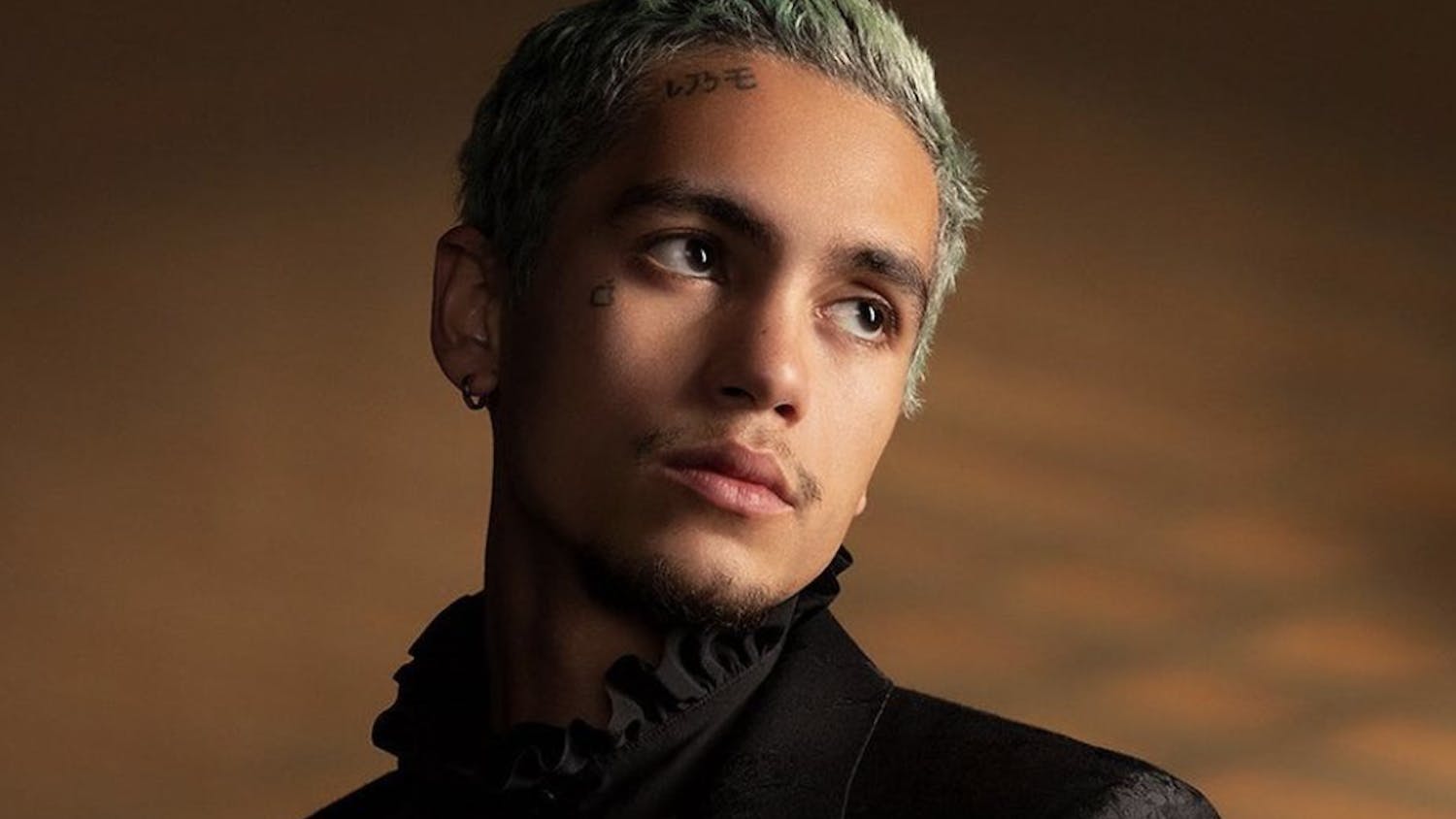Elliot Lee is a Brooklyn-based, electronic pop singer. They first started releasing music to Spotify in 2018. It was then that they dropped numerous singles that would ultimately help launch their musical career. Songs such as “Cruel,” “SRY ILY,” “Earthworms,” “Sleepwalking” and “TV Head” were seen as relatable to listeners, especially young adults, as each one delved into the feelings of loneliness and existentialism. Since then, Lee has gained a steady following, with 222,496 monthly Spotify listeners.
The singer stands out from the rest as an artist who is open to discussing their autism diagnosis, along with their struggles and being a voice for those similar to them. The Post sat down to talk with Lee as they provided insightful reflections on what it means to be autistic and a musician, as well as their following and musical themes.
The Post: How did constantly moving as a child influence your career as a musician?
Lee: I’ve lived all over the US, which actually itself was a cool experience, because I moved around a lot as a kid. I've experienced a lot of cultures. I went to high school in Florida, I was born in Washington state and then I was in Hawaii and Michigan. I think that nomadic lifestyle helped me a lot with finding a connection with music because it helped me stay connected to something during all the tumultuous moving around.
TP: As an artist who has been very vocal about your autism diagnosis and struggles that come with it, why do you think it’s important to bring more awareness to musicians who have autism?
Lee: I think it's important because people oftentimes have a stereotype of what autism is. That can be harmful for every single person who's autistic because it puts us all in this little box of how we're supposed to look and act, and it also makes people (unable to) get diagnoses and makes people not get the help they need for when they're autistic and have these different special needs that we have. I think it's important to have role models who are like you, and I know a lot of autistic people that don't really have someone to look up to in the industry who's openly autistic. I'm sure there are autistic musicians, I’m positive of it, but not many that are open to talk about it. I think for me it’s a calling to be there and be the voice for some of us who can't even speak and I think be a mouthpiece for all of us.
TP: Your fan base is called the “Bubblegum Army,” how did this arise?
Lee: I wanted to give them a name because they deserved one. I don't like calling them my fans necessarily because it feels a little too self-aggrandizing to call them fans. There's people who like my music, so I want to give them a cute name. I used to be called “the voice for the voiceless, soldier for the different” early on, so I was like we can all be soldiers together and this movement towards lifting voices and being mouthpieces for each other and also getting our stories out there. I think it's just important to think of it that way, and I think that we're having a movement as the bubblegum soldiers.
TP: How important are your listeners to you?
Lee: I think they're the only reason I'm even here honestly, and the reason I keep doing what I do. Sometimes, it's hard to balance what people want from you in the industry versus what you think is right, and they helped me stay on track because I just think of what they need. For me, that's what's important. If the label’s pushing me to write a love song or whatever, I'm like "Well, that's not really what I'm here for." They helped me stay on the right path and understand where I should keep going in the future. It can be hard to stay on the right path when all sides are pushing in different directions, so I feel like they're my anchor in that way.
TP: From what I’ve read, a lot of your music centers around the feeling of loneliness and young adult experiences. Why do you like writing about these themes?
Lee: For me, I think especially writing about the feelings you have as a teenager is really important because when I was a kid, I didn't have someone there for me. I kind of always felt alone and I was always the outcast, and I didn't have someone to turn to, to talk about my feelings, and so I think it's important to give those people like me to give them someone to look towards like "Oh, I'm not alone in these things that I'm feeling and it's normal to have all these worries about the world." For some of us, it's normal to think about death and all that and it's okay and you're not alone. It's just part of life. You don't have to feel shame for it because we're here for each other, so that's why it's important for me to talk about.
TP: Do you have any current music you’re working on?
Lee: I have a song actually coming out June 24. It’s a new song called “5,4,3,2,1.” I've started promoting it on TikTok and it's a really fun one. It's about being lied to and putting your foot down and being like “I know you're lying to me, I'm not gonna stand for it anymore.’”






